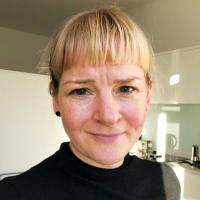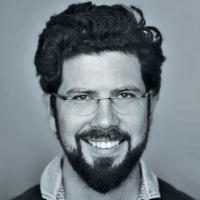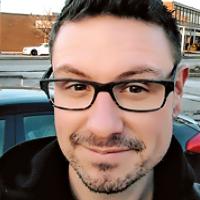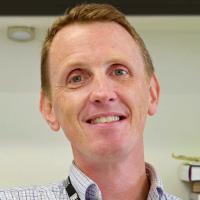
Ellen Clarke
Evolutionary Origins and Transitions of Agency
Cluster Coordinator
University of Leeds
Dr Clarke is a Lecturer at the University of Leeds in the UK, and Director of the Leeds Centre for History and Philosophy of Science. Before being appointed at Leeds in 2017, she held postdocs at All Souls College, Oxford, and the Konrad Lorenz Institute in Vienna. She finished her PhD at Bristol under the supervision of Samir Okasha.
She specialises in Philosophy of Biology, especially evolutionary theory. Much of her published work concerns unitisation problems in biology: Situations where it is difficult to agree on the nature and boundaries of the main actors or concepts in a theory or model. One example is the organism – an important unit in all branches of biology, but one which lacks a common definition. My work explores this unit in the context of evolutionary optimality models and major transitions. I am also interested in how units are picked out in ecology and in conservation, and what difference changes of definition make to things like biodiversity measures. She also maintains interests in Philosophy of Race, and Sex and Gender. She is currently writing a book called ‘The Units of Life: Kinds of individuals in Biology’.

Charlie Cornwallis
Agential Behavior and Plasticity in Evolution
Evolution and organismal goal-directedness
Lund University
Charlie Cornwallis is an Associate Professor in Biology at Lund University, Sweden. His undergraduate studies were taken in Zoology at the University of Sheffield, UK. In 2005 he obtained a PhD on mechanisms of sexual selection, also from the University of Sheffield. During this time Cornwallis also ran field expeditions and worked on projects encompassing a variety of topics from sea bird ecology in Northern Canada to conservation of giant otters in Bolivia. Following his PhD, Cornwallis moved to Oxford University to take up a Research Fellowship in Ornithology and subsequently a Browne Research Fellowship at The Queen’s College, Oxford. During this time he started working on social evolution. In 2011, Cornwallis moved to Lund to take up an Associate Professorship. Research topics of the Cornwallis group include: major transitions in evolution including multicellularity and symbiosis, the evolution of cooperation; the evolution of sexual behaviour and mating systems; speciation; phenotypic plasticity; and host-pathogen coevolution. The group uses a combination of comparative, experimental evolution and genetic analyses.

Jeferson Coutinho
Higher-Level Agency and Directionality in Ecology and Earth Science
An organizational account of ecological functions
Graduated in Biological Sciences from the Federal University of Bahia (2010). Master in Ecology and Biomonitoring (2013 - UFBA). Doctor in Ecology from the Federal University of Bahia, with a period at the Universidad Nacional del Río Negro, Bariloche, Argentina. Has experience in the field of Ecology, with an emphasis on Applied Ecology and Pollination. Develops studies in the area of Ecology and Functional Diversity of Bees. He works at the Laboratory of Biology and Ecology of Bees with research involving citizen science and transdisciplinarity. He teaches Basic, Technical and Technological Education at the Federal Institute of Education, Science and Technology of Bahia, Campus of Salvador. He currently serves as head of the Department of Health Technology and Biology (DTSBio). He is a Researcher at the National Institute of Science and Technology in Inter and Transdisciplinary Studies in Ecology and Evolution - INCT-IN TREE. Email: jeferson.gabriel@gmail.com

Eric Desjardins
Higher-Level Agency and Directionality in Ecology and Earth Science
Geofunctions: purposes and agents in global environmental sciences
Western University
Eric Desjardins is Associate Professor in the Philosophy Department at Western University and the Associate Director of the Rotman Institute of Philosophy. He works on the normative dimensions of historical contingency and biological entanglement in various life sciences. The main goals of his research are 1) to clarify the meaning of and relation between these two notions, 2) explore and develop conceptual frameworks that can explain their relevance in various disciplines (especially experimental evolution and ecology), and 3) show how these frameworks can be used in promoting more effective and ethical decision making in an increasingly human-impacted world.

Hugh Desmond
Agential Behavior and Plasticity in Evolution
Agency and explanation in the evolutionary sciences
Leibniz Universität Hannover
Hugh Desmond is a postdoctoral researcher at the department of philosophy at the Leibniz Universität Hannover and assistant professor at the University of Antwerp. He earned his PhD in philosophy of biology at the KU Leuven with visiting fellowships at Princeton University and New York University. After his PhD, he has held fellowships in bioethics and applied ethics at the Center for Biomedical Ethics and Law (KU Leuven) and The Hastings Center, and in philosophy of science at the Institute for the History and Philosophy of Science and Technology (CNRS/Paris I-Sorbonne). His work focuses on the logic and normative implications of evolutionary theory, with special attention for the concepts of progress, human nature, and agency. He has also published broadly on the social and methodological dimensions of science: competition, trust, professionalism, and integrity. Recent key publications include “Human Success: Evolutionary Origins and Ethical Implications” (with G. Ramsey, Oxford UP 2022), “The Selectionist Rationale for Evolutionary Progress” (Biology and Philosophy 2021) and the book chapter “The Ontology of Organismic Agency: A Kantian Approach” (with P. Huneman, 2020).

Justin Donhauser
Higher-Level Agency and Directionality in Ecology and Earth Science
Geofunctions: purposes and agents in global environmental sciences
Bowling Green State University
Justin Donhauser's work tackles methodological, practical, and broadly social issues at the intersection of applied sciences and public policy and resource management in a practicable way. He specializes in the logic and philosophical foundations of big‐data and statistical modelling methods in systems ecology and climate science, and, more recently, also has numerous projects on issues in applied AI and robotics in those and other areas.

Philip Donoghue
Higher-Level Agency and Directionality in Ecology and Earth Science
Chance versus purpose in biosphere evolution
Subaward Principal Investigator
University of Bristol
Phil is Professor of Palaeobiology at the University of Bristol, UK. His research focusses on the causes and consequences of major evolutionary transitions, drawing insight from anatomical and molecular data from living and fossil organisms. Major themes include the origins of animals, plants, and the establishment of evolutionary timescales.

